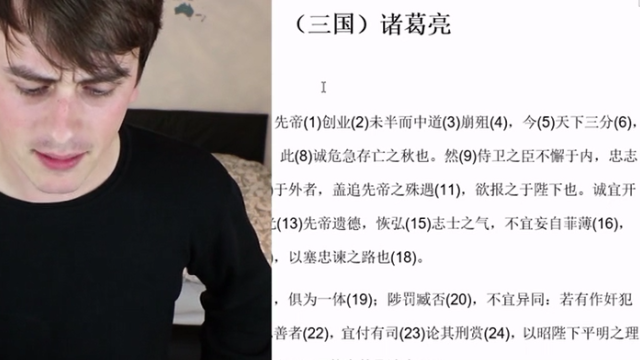【经典名著阅读】《红字》第二十一章(上)
作者:Nathaniel Hawthorne
2011-09-13 10:00
"They wait to see the procession pass," said Hester. "For the Governor and the magistrates are to go by, and the ministers, and all the great people and good people, with the music and the soldiers marching before them."
“他们等着看游行队伍经过,”海丝特说。“因为总督和官员们要从这里走过,还有牧师们,以及所有的大人物和好心人,前面要有乐队和士兵开路呢。”
"And will the minister be there?" asked Pearl. "And will he hold out both his hands to me, as when thou ledst me to him from the brook-side?"
“牧师会在那儿吗?”珠儿问。“他会朝我伸出双手,就象你从小河边领着我去见他的时候那样吗?”
"He will be there, child," answered her mother. "But he will not greet thee to-day; nor must thou greet him."
“他会在那儿的,孩子,”她母亲回答。“但是他今天不会招呼你;你也不该招呼他。”
"What a strange, sad man is he!" said the child, as if speaking partly to herself. "In the dark night-time he calls us to him, and holds thy hand and mine, as when we stood with him on the scaffold yonder! And in the deep forest, where only the old trees can hear, and the strip of sky see it, he talks with thee, sitting on a heap of moss! And he kisses my forehead, too, so that the little brook would hardly wash it off! But here, in the sunny day, and among all the people, he knows us not; nor must we know him! A strange, sad man is he, with his hand always over his heart!"
“他是一个多么奇怪、多么伤心的人啊!”孩子说,有点象是自言自语。“在那个黑夜里,他叫咱们到他跟前去,还握住你和我的手,陪他一起站在那边那个刑台上。而在深源的树林里,只有那些老树能够听见、只有那一线青天可以看见的地方,他跟你坐在一堆青苔上谈话!他还亲吻了我的额头,连小河的流水都洗不掉啦!可是在这儿,天上晴晴的,又有这么些人,他却不认识我们;我们也不该认识他!他真是个又奇怪又伤心的人,总是用手捂着心口!”
"Be quiet, Pearl! Thou understandest not these things," said her mother. "Think not now of the minister, but look about thee, and see how cheery is everybody's face to-day. The children have come from their schools, and the grown people from their workshops and their fields, on purpose to be happy. For, to-day, a new man is beginning to rule over them; and so- as has been the custom of mankind ever since a nation was first gathered- they make merry and rejoice; as if a good and golden year were at length to pass over the poor old world!"
“别作声,珠儿!你不明白这些事情,”她母亲说。“这会儿别想着牧师,往周围看看吧,看看大伙今天脸上有多高兴,孩子们都从学校出来了,大人也都从店铺和农田里走来了,为的就是高兴一下子。因为,今天要有一个新人来统治他们了;自从人类第一次凑成一个国家就有这种习惯了,所以嘛,他们就病痛快快地来欢庆一番;就象又老又穷的世界终于要过上一个黄金般的好年景了!”
It was as Hester said, in regard to the unwonted jollity that brightened the faces of the people. Into this festal season of the year- as it already was, and continued to be during the greater part of two centuries- the Puritans compressed whatever mirth and public joy they deemed allowable to human infirmity; thereby so far dispelling the customary cloud, that, for the space of a single holiday, they appeared scarcely more grave than most other communities at a period of general affliction.
海丝特说得不错,人们的脸上确实闪耀着非同凡响的欢乐。过去已然这样,在随后两个世纪的大部分年月里依然如此,清教徒们把自认为人类的弱点所能容忍的一切欢乐和公共喜庆,全都压缩在一年中的这一节日中;因此,他们总算拨开积年的阴霾,就这独一无二的节日而论,他们的神情才不致比大多数别处的居民倒霉时的面容要严峻些。











